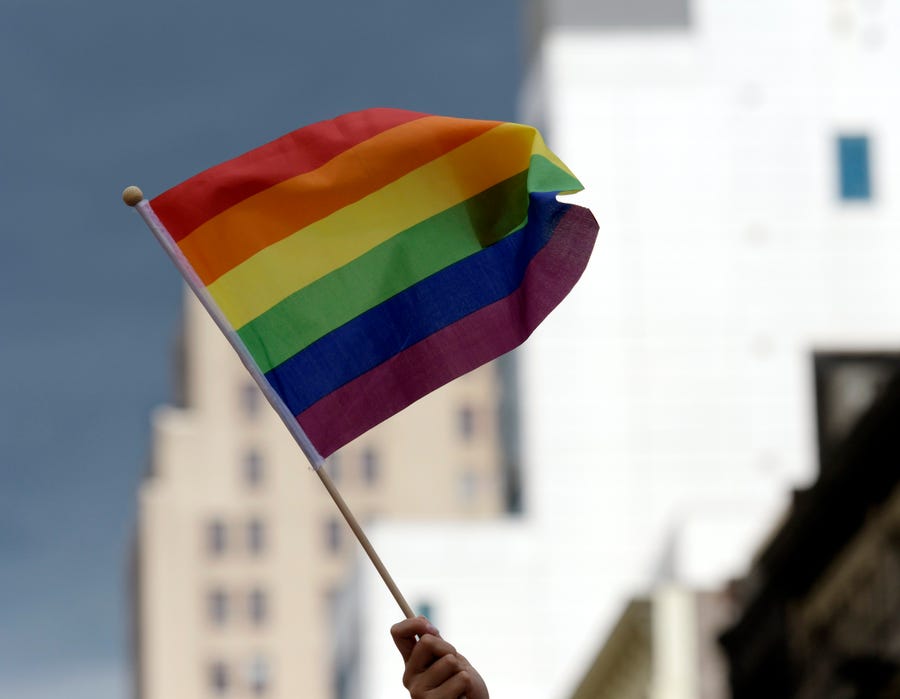 |
| |
| |
| |
| |
| |
| |
| Good morning, Daily Briefing readers. It's the first day of June, which brings hurricane season, Pride Month, Father's Day, and the start of summer. Many cities are starting the new month under curfew after an intense weekend of protests over the death of George Floyd. Let's get started with a quick recap of the biggest news you missed this weekend: |
| |
| It's N'dea and here is the news you need to know today. |
George Floyd: Major cities across US impose curfews amid protests |
| With cities wounded by days of violent unrest, America headed into a new week Monday with neighborhoods in shambles, urban streets on lockdown and shaken confidence about when leaders would find the answers to control the mayhem amid unrelenting raw emotion over police killings of black people. As cities try to quell demonstrations following the death of George Floyd, several governors and mayors across the country imposed or extended curfews into Monday morning in anticipation of another night of unrest. More than 20 cities have imposed some type of curfew. Minnesota Gov. Tim Walz announced he would extend curfew for Minneapolis and St. Paul through Monday morning. Other cities who have announced curfews include Chicago, Los Angeles, San Francisco, Miami, Cleveland, Indianapolis, Seattle, Louisville – where Breonna Taylor was killed – Richmond, Va., and Portland, Ore. |
| |
Busy hurricane season expected, with up to 19 named storms possible |
| It's officially the start of hurricane season, and it's expected to be a busy one . The season arrives against the backdrop of the coronavirus, which will almost certainly impact evacuations and shelter from approaching storms. The National Oceanic and Atmospheric Administration (NOAA) expects 13 to 19 named storms to develop this season (6 to 10 being hurricanes). If predictions hold true, it will be a record fifth consecutive year of above-normal activity. That would beat the previous four-year streak set from 1998 to 2001. The season runs through Nov. 30, with storms typically peaking in August and September. |
| |
Here's what else is happening: |
| |
Florida Keys to reopen to tourists, hotels limited to 50% occupancy |
| The Florida Keys will reopen to tourists Monday, more than two months after the island chain closed to visitors . Checkpoints that barred visitors from coming into the Florida Keys will be removed and hotels and other lodging establishments, including campgrounds and vacation rentals, will also be allowed to reopen at 50% occupancy. These businesses must implement sanitation stations and follow the American Hotel and Lodging Association's cleaning guidelines for COVID-19. Airport screenings and bus restrictions will also be lifted in June. But if the Florida Keys experience a surge in cases after reopening, "restrictions may be heightened and amenities may again be closed," according to a statement by Monroe County Emergency Management. |
| • | States may be reopening, but many still require travelers to self-quarantine. Here's where. | |
Here is the latest news on COVID-19 |
| |
Coronavirus pandemic to impact Pride Month activities |
| The start of the month of June on Monday also marks the beginning of Pride Month, which commemorates the Stonewall uprising in New York City 51 years ago. On June 28, 1969, New York police raided the Stonewall Inn gay bar, sparking street protests in the surrounding Greenwich Village neighborhood. Due to the coronavirus pandemic, more than 475 Pride events across the USA have been canceled or postponed, the Washington Post reported. If you can't celebrate pride month in person, here are 10 recently published books that celebrate, examine and champion gay lives. |
| |
 | | A participant waves a rainbow flag during the annual New York Pride March in New York, New York. | | EPA | |
Coronavirus-free Montenegro to open borders to tourists – but there's a catch |
| Montenegro, the first country to claim victory over the coronavirus with no active cases, is opening its borders Monday – but not to everyone . The country's prime minister, Dusko Markovic, announced that tourists will only be allowed to enter from countries that meet a certain criteria. The European countries whose citizens will be able to cross over the small country's borders must currently have no more than 25 COVID-19 patients per 100,000 inhabitants. Markovic said states that meet the criteria are Croatia, Slovenia, Austria, Germany, Poland, the Czech Republic, Hungary, Albania and Greece. The last recorded case of coronavirus in Montenegro was about three weeks ago. |
| |
In better news: Minneapolis is trying to pick up the pieces |
| After nearly a week of protests over the death of George Floyd roiled Minneapolis, there were people carrying brooms and garbage bags on a sunny Sunday. |
| Jack Manderscheid, a University of Minnesota senior, exemplified the spirit of the day by meticulously walking through the Uptown neighborhood filling up four trash bags that he carried on his bicycle. |
| Manderscheid had attended a demonstration earlier in the week, but the fumes from tear gas used by police officers bothered him. So had the large crowds during a time when he is trying to keep his distance from people over fears of spreading the new coronavirus. |
| He instead decided to clean the streets and sidewalks, only to find that hundreds of others had the same idea. Other residents found a way to help by providing food, diapers and other essentials in a city where most stores and restaurants are closed. |
 | | Tracy Gray Knutson sat down to rest beneath this sign in south Minneapolis on Sunday and soon found herself dispensing a bounty of donated food and diapers. | | Mark Emmert, Des Moines Register, USA TODAY Network | |
| |
| |
| |
| |
No comments:
Post a Comment